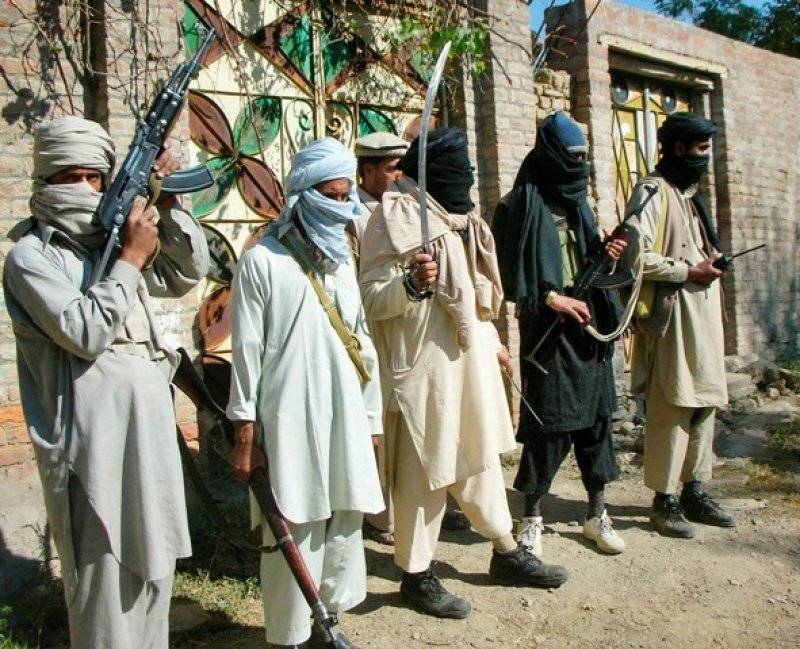
In August, a total of 27 terror attacks were reported and twenty-four of them were committed from August 1 - 17, the remaining three attacks were reported on two days – August 17 and 31. What was the cause of such an unprecedented peace? Although Tehreek-e-Taliban Pakistan (TTP) had announced ceasefire for an indefinite period on 31 May 2022, the terror attacks had continued taking place in the country. Around 48 security personnel were martyred in 40 attacks that were carried out by unidentified militants from June to August 2022. This figure will go up if the fatalities of civilians are also included in it.
The so-called ceasefire for indefinite period was unilaterally terminated on September 3, 2022 by TTP blaming Pakistan government for making no meaningful attempts to have successful negotiations. Despite terminating the ceasefire, the drop in terror-attacks continued in September as well – from 27 attacks in August the number came down to 17 in September. But there was no prolong spell of peaceful days in September as was observed in August.
The only reason for this drop in militancy appears to be the large scale of flooding and devastation during the month of August in the country that had affected all forms of human mobility. The table below shows the violence continued occurring even after the announcement of ceasefire for indefinite period by TTP in the month of May.

In September, the number of terror attacks did come down significantly but there was a sudden upsurge in violence carried out and claimed by TTP. After discontinuing ceasefire, TTP officially claimed three terror attacks in September that left 10 civilians and two security persons dead in KP. A cross border attack was also launched by Afghan-based militant on September 14 in Kurrum district of KP leaving three soldiers dead. The ISPR’s statement condemned the use of Afghan soil by terrorists for activities against Pakistan and demanded that the Afghan government will not allow such activities in the future.
Although this cross border attack was not claimed by the TTP, the nature of attack carried their foot prints. These attacks were an attempt of the TTP to prove its ability of how quickly it can put his militants into actions and wreak havoc in the country even though their leadership and a large number of their militants, estimated to be more than 6,000, are sitting outside the country under the shelter of Afghan Taliban. Afghan Taliban had enjoyed similar support in Pakistan when they were fighting against the invading armies of USA and NATO countries.
The situation became so unbearable for Pakistan that the Prime Minister Shehbaz Sharif, during his speech at the United Nations General Assembly on 25 September, had to categorically mention the presence of ISIL-K and TTP as well as Al-Qaeda, ETIM and IMU in Afghanistan as a threat that needs to be dealt with by seeking support and cooperation from the interim Afghan authorities. Afghan Taliban didn’t like this comment and rejected the allegations out rightly, a gesture that was a repeat of how Afghan Taliban used to deny their presence in Pakistan when USA would make such allegations in the past.
The lesson Pakistan has been learning from its experience with the Afghan Taliban is opposite to what it expected from them prior to their ascendance to power in Afghanistan. Once the Afghan Taliban came into power, there was a feeling of victory within certain quarters of Pakistan as it was expected that the Afghan Taliban will be friendly and supportive towards Pakistan. It was expected that the historical border dispute of Durand Line will also be resolved peacefully. The multi-million-dollar border-fencing project that was about to complete before the US withdrawal from Afghanistan became an issue that caused border conflicts between Pakistan and Afghanistan as soon as the Afghan Taliban came into power.
Pakistan now has some additional issues to address in dealing with the Afghan’s interim government like cross-border attacks by the Afghan-based militants and their sleeping cells in the country that are constantly activated to harm the security situation of the country.
Afghan Taliban came to power in August 2021 and the same year Pakistan witnessed an up rise in violence by about 42% and this trend is still continuing despite all efforts of Pakistan to pursue TTP and Afghan Taliban to have peace in the region. Not only the terror attacks did go up in the country after Afghan Taliban’s victory in Afghanistan, other crimes like kidnapping for ransom and extortion of money from businessmen, politicians, and other wealthy people of the country have escalated as well. To keep such operations going uninterruptedly, TTP resort to all kinds of intimidation like hurling of explosive materials at the residences of their targets and thus create a fear among them to meet their demands without any resistance.
Despite all these criminal activities that appear to have links with the Afghan Taliban and TTP, the Afghan officials continue claiming that they won’t allow their soil to be used for terrorism against any country. A recent report revealed that the Afghan Taliban have been generating around $200 million (around Rs.4.5 billion) annually through various means (criminal activities) in Pakistan, including the extortion. TTP is the main source of such operation for them.
Whether or not the Afghan Taliban agree, their victory owes a considerable amount of contribution from Pakistan through legal and illegal means. It is unfortunate that the benefactors of those supports are now posing another threat to the lives of Pakistani people. The policy of “strategic depth” pursued by the Pakistani policy makers is now being pursued by the TTP and its mentor – the Afghan Taliban. Is there any lesson to be learnt from this catastrophic failure of our policy makers and their ideologues?
The so-called ceasefire for indefinite period was unilaterally terminated on September 3, 2022 by TTP blaming Pakistan government for making no meaningful attempts to have successful negotiations. Despite terminating the ceasefire, the drop in terror-attacks continued in September as well – from 27 attacks in August the number came down to 17 in September. But there was no prolong spell of peaceful days in September as was observed in August.
The only reason for this drop in militancy appears to be the large scale of flooding and devastation during the month of August in the country that had affected all forms of human mobility. The table below shows the violence continued occurring even after the announcement of ceasefire for indefinite period by TTP in the month of May.

In September, the number of terror attacks did come down significantly but there was a sudden upsurge in violence carried out and claimed by TTP. After discontinuing ceasefire, TTP officially claimed three terror attacks in September that left 10 civilians and two security persons dead in KP. A cross border attack was also launched by Afghan-based militant on September 14 in Kurrum district of KP leaving three soldiers dead. The ISPR’s statement condemned the use of Afghan soil by terrorists for activities against Pakistan and demanded that the Afghan government will not allow such activities in the future.
Although this cross border attack was not claimed by the TTP, the nature of attack carried their foot prints. These attacks were an attempt of the TTP to prove its ability of how quickly it can put his militants into actions and wreak havoc in the country even though their leadership and a large number of their militants, estimated to be more than 6,000, are sitting outside the country under the shelter of Afghan Taliban. Afghan Taliban had enjoyed similar support in Pakistan when they were fighting against the invading armies of USA and NATO countries.
The situation became so unbearable for Pakistan that the Prime Minister Shehbaz Sharif, during his speech at the United Nations General Assembly on 25 September, had to categorically mention the presence of ISIL-K and TTP as well as Al-Qaeda, ETIM and IMU in Afghanistan as a threat that needs to be dealt with by seeking support and cooperation from the interim Afghan authorities. Afghan Taliban didn’t like this comment and rejected the allegations out rightly, a gesture that was a repeat of how Afghan Taliban used to deny their presence in Pakistan when USA would make such allegations in the past.
The lesson Pakistan has been learning from its experience with the Afghan Taliban is opposite to what it expected from them prior to their ascendance to power in Afghanistan. Once the Afghan Taliban came into power, there was a feeling of victory within certain quarters of Pakistan as it was expected that the Afghan Taliban will be friendly and supportive towards Pakistan. It was expected that the historical border dispute of Durand Line will also be resolved peacefully. The multi-million-dollar border-fencing project that was about to complete before the US withdrawal from Afghanistan became an issue that caused border conflicts between Pakistan and Afghanistan as soon as the Afghan Taliban came into power.
Afghan Taliban came to power in August 2021 and the same year Pakistan witnessed an up rise in violence by about 42% and this trend is still continuing despite all efforts of Pakistan to pursue TTP and Afghan Taliban to have peace in the region.
Pakistan now has some additional issues to address in dealing with the Afghan’s interim government like cross-border attacks by the Afghan-based militants and their sleeping cells in the country that are constantly activated to harm the security situation of the country.
Afghan Taliban came to power in August 2021 and the same year Pakistan witnessed an up rise in violence by about 42% and this trend is still continuing despite all efforts of Pakistan to pursue TTP and Afghan Taliban to have peace in the region. Not only the terror attacks did go up in the country after Afghan Taliban’s victory in Afghanistan, other crimes like kidnapping for ransom and extortion of money from businessmen, politicians, and other wealthy people of the country have escalated as well. To keep such operations going uninterruptedly, TTP resort to all kinds of intimidation like hurling of explosive materials at the residences of their targets and thus create a fear among them to meet their demands without any resistance.
Despite all these criminal activities that appear to have links with the Afghan Taliban and TTP, the Afghan officials continue claiming that they won’t allow their soil to be used for terrorism against any country. A recent report revealed that the Afghan Taliban have been generating around $200 million (around Rs.4.5 billion) annually through various means (criminal activities) in Pakistan, including the extortion. TTP is the main source of such operation for them.
Whether or not the Afghan Taliban agree, their victory owes a considerable amount of contribution from Pakistan through legal and illegal means. It is unfortunate that the benefactors of those supports are now posing another threat to the lives of Pakistani people. The policy of “strategic depth” pursued by the Pakistani policy makers is now being pursued by the TTP and its mentor – the Afghan Taliban. Is there any lesson to be learnt from this catastrophic failure of our policy makers and their ideologues?

